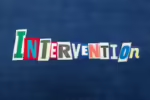
Planning an intervention for a loved one struggling with a substance use disorder is a sensitive and challenging process. The aim is to encourage the individual to acknowledge their problem and seek treatment. However, intervention planning requires careful consideration, preparation and understanding. This blog will explore the essential factors to keep in mind before initiating an intervention, including crafting a response to an intervention plan, addressing potential obstacles and ensuring that the process is supportive rather than aggressive.
Understanding Intervention Planning
Intervention planning is often the initial step when considering how to help a loved one with a substance use disorder. An intervention is a structured, solution-oriented process aimed at encouraging a person to seek help for their addiction. It involves family members, friends and sometimes professionals who care about the individual and are concerned about their well-being.
Before planning an intervention, it’s vital to assess the timing. An intervention should not be rushed or on a whim. Interventions require thorough preparation and coordination. Understanding the severity of the addiction, the individual’s readiness to accept help and the potential reactions they might have during the intervention are all critical components. The goal is to create an environment where the individual feels supported rather than attacked.
Creating a Response to Intervention Plan
A response to intervention plan is a strategic outline designed to guide the intervention process. This plan should be tailored to the unique needs of the individual and consider various factors, such as the type of substance being abused, the length and severity of the addiction, and any co-occurring mental health disorders.
Key components of a response to an intervention plan include:
1. Assembling the Intervention Team: Choose people who have a close relationship with the individual and can speak from a place of love and concern. The team should include a mix of family members, friends and possibly a professional interventionist or therapist.
2. Developing the Message: Each team member should prepare what they want to say during the intervention. The message should focus on specific examples of how the individual’s behavior has affected the team members emotionally, physically and financially. It’s essential to avoid blaming or shaming language, as the goal is to express concern and care.
3. Deciding on Consequences: The intervention should outline clear consequences if the individual refuses help. These might include setting boundaries, such as no longer providing financial support or limiting contact. The consequences should be realistic and enforceable.
4. Choosing a Treatment Option: Research and identify appropriate treatment options in advance. This could include inpatient rehab, outpatient programs, therapy or support groups. Having these options ready shows that the team is serious about helping the individual get better.
Anticipating Responses to the Intervention Plan
An essential aspect of intervention planning is anticipating how the individual might respond. Reactions can vary widely, from denial and anger to acceptance and relief. It’s crucial to prepare for these responses and have a plan for handling them.
Some individuals might initially resist or reject the idea of treatment, while others may feel overwhelmed or defensive. Regardless of the reaction, it’s important to remain calm and supportive. The intervention team should be prepared to stay focused on the message of concern and love, reiterating the importance of seeking help.
In cases where the individual becomes aggressive or hostile, it may be necessary to pause the intervention and seek professional assistance. A professional interventionist can guide how to manage such situations and ensure the safety of all involved.
Seeking Professional Guidance
While some families may choose to conduct an intervention on their own, others might benefit from the guidance of a professional interventionist. These professionals are trained in managing the complexities of interventions and can help the team stay focused and effective. They can also provide invaluable insights into the best practices for approaching the individual and handling unexpected challenges.
A professional can also assist in developing a comprehensive response to an intervention plan that considers the individual’s unique circumstances, including any underlying mental health issues, legal problems, or medical concerns.
Intervention planning is a delicate process that requires careful thought and preparation. By understanding the key elements involved, creating a thoughtful response to the intervention plan, and anticipating potential reactions, families and friends can approach the intervention to maximize the chances of a positive outcome.
Remember, the ultimate goal is to encourage the individual to seek help for their substance use disorder, and this requires patience, empathy and a well-structured approach.
